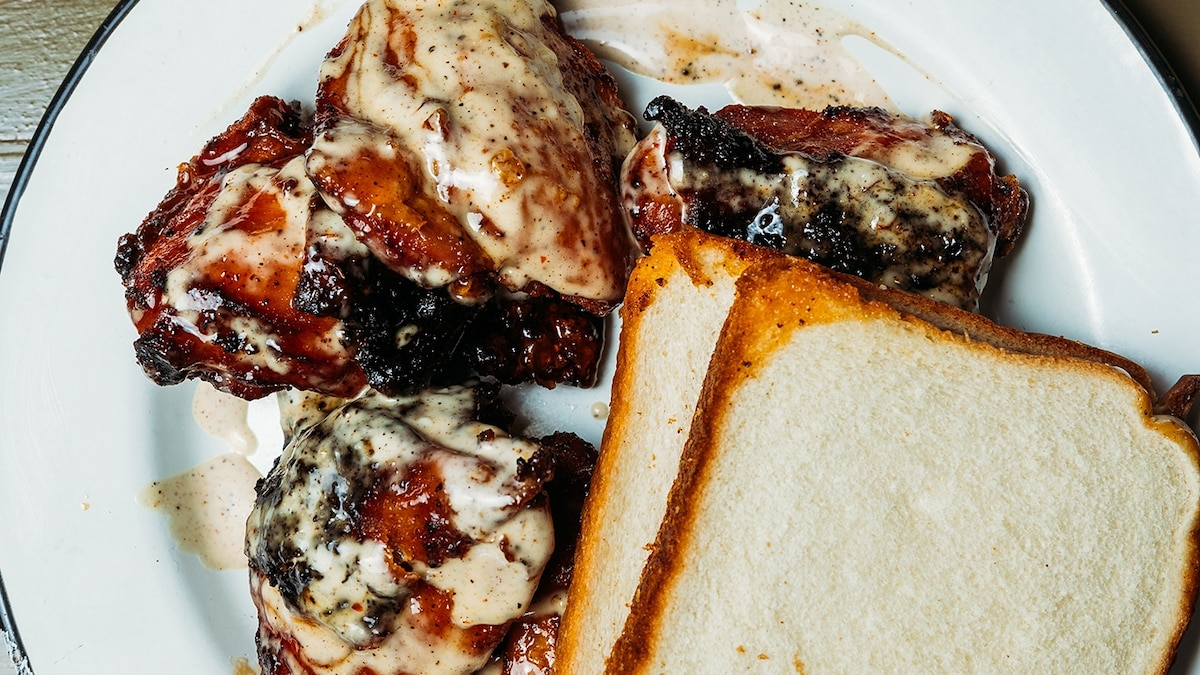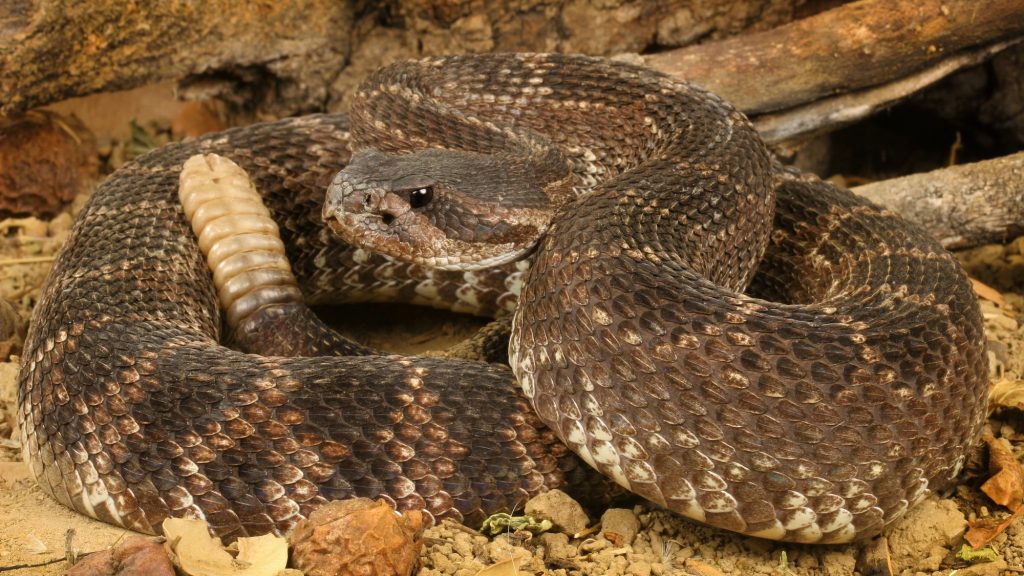Now Reading: The best places to get a taste of Alabama barbecue—‘white sauce’ included
-
01
The best places to get a taste of Alabama barbecue—‘white sauce’ included
The best places to get a taste of Alabama barbecue—‘white sauce’ included

Texas has brisket, Memphis has ribs. The Carolinas enjoy their pulled pork, and Kansas City is all about the sauce game. But not many immediately associate barbecue with Alabama. Well, except for one thing—the mayonnaise-y white sauce.
While the state’s polarizing contribution to the American barbecue consciousness celebrates its 100th anniversary this year, there’s much more to the state’s barbecue than white sauce, and many Alabamians would proudly put their barbecue among the best in the country. With a mouthwatering Alabama Barbecue Trail—from civil rights hot spots to 100-year-old joints—there’s no better way to uncover Alabama’s unique cuisine and history than biting into it.
Barbecue borrows the cooking methods of Native Americans, meats and sauces of European immigrants, and the labor (meaning recipes and know-how) of Africans to create a taste that is perhaps singularly American. In Alabama, barbecue—as a food, social gathering, and style of cookery—has been an essential part of life and society for ages.
Barbecues were not only used for celebrations and commemorations, they were also so intertwined in political processes that the state government tried banning them altogether in the 1800s.
But Alabama barbecue as we know it today didn’t come into its own until the late 1800s with the rise of the interstate, and joints started sprouting up along major highway routes between Southern cities. While barbecue in neighboring states developed identities that captivated Americans, Alabama barbecue hasn’t really caught on in the national psyche.
“I think not being recognized as one of the barbecue regions like Kansas City, Texas, Memphis, and the Carolinas has maybe ruffled some feathers,” says Mark Johnson, author of An Irresistible History of Alabama Barbecue. “There’s a sense of pride here. Alabamians will defend their barbecue against anyone else’s.”
So, what is Alabama barbecue?
“Alabamians don’t even agree on what barbecue is,” says Johnson. “Chicken and white sauce is the specialty of North Alabama, Decatur, and Huntsville. Birmingham is very much dominated by pulled pork with a tomato-based sauce. And then in Tuscaloosa, it’s by far ribs with a vinegar-forward sauce that’s got some kick to it. When you get closer to the Georgia border, you start seeing the South Carolina mustards creeping in.”
(6 barbecue styles, from Alabama white sauce to Memphis pork ribs)
The rise of white sauce
Inextricably linked to Alabamians’ appetites like apple pie to the broader U.S., Alabama’s white sauce is a concoction of bubbling hot mayonnaise mixed with a hefty dose of vinegar and black pepper.
The creation is the brainchild of a railway worker turned pitmaster named “Big Bob” Gibson, who, back in the day, soaked his pit-cooked chickens in this barbecue sauce to prevent them from drying out. Now celebrating its 100-year-anniversary, Big Bob’s namesake sauce and restaurant in Decatur is a juggernaut on the world barbecue circuit, with walls covered in plaques denoting it the “World’s Best Barbecue.” As for the polarizing sauce, it has earned homages across Alabama and the world.
Back in the pit, Andrew Lilly, the great-great grandchild of Gibson and current manager of Big Bob Gibson Bar-B-Q in Decatur, forks a whole bird off the brick pit and dunks it in the white sauce before tossing it back on the grill.
“It keeps the chicken moist and just gives it that good tangy peppery flavor,” says Lilly. “You just don’t get that any other way.”


White sauce is the brainchild of a railway worker turned pitmaster named “Big Bob” Gibson.
Photograph by Jeffrey Greenberg, Universal Images Group/Getty Images (Top) (Left) and Photograph by JFsPic, Getty Images (Bottom) (Right)
In total, he’ll cook this first batch of 75 chickens slowly for three-to-four hours. By roughly 11 a.m., when he pulls them off the pit, the restaurant is full of ravenous diners.
Although, not everybody is a fan. White sauce may reign supreme in barbecue joints across Northern Alabama, but head south and many will disavow the sauce entirely. Love it or hate it, barbecue chicken and white sauce is part of the state’s culinary identity.
Barbecue and the civil rights movement
“Get the pig ears,” says Larry Bethune. “We sell a lot of ‘em… we sell a lot of everything, really.”
Bethune is the second-generation owner of Brenda’s Bar-Be-Que Pit in Montgomery. Brenda’s has been a staple in the city’s Black community since its opening in 1942, serving up everything from the famous pig ear sandwiches to legendary ribs and chicken platters at its drive-up counter. What Brenda’s may lack in square footage, it more than makes up for in flavor and Black history.
On the restaurant’s window is a newspaper clipping of Larry’s mother, Jereline Bethune, at the March of Montgomery. He starts singing, “We Shall Overcome” and recollects his mother’s role during the civil rights movement. She became involved during the 1955 and 1956 Montgomery Bus Boycott and worked with the NAACP, printing out fliers about when and where meetings and protests would occur. Following the passing of the Voting Rights Act of 1965, Jereline would host classes at the restaurant to help Black people pass literacy tests so they could vote.
The pig ear sandwich arrives slippery, cartilaginous, soaked in ketchup, mustard, and hot sauce. Like the restaurant’s history, it may not look pretty, but it’s a taste to be savored.
The story is similar at the opposite end of the state’s historic National Civil Rights Trail in Selma at Lannie’s Bar-B-Q Spot. Back in the ‘60s, Lannie’s was a popular hub where activists like Martin Luther King Jr., John Lewis, and Ralph Abernathy could commiserate and devour hickory-smoked pork shoulder, ribs, and the whole fixings.
Today, Lannie’s is still run by the family, and, although the dirt floors are gone, they’re still slinging the same dishes that have brought the city of Selma together for 80-odd years.
Deborah’s brother Floyd sets down a mountainous pulled pork sandwich and a few pork ribs all coated in Lannie’s famous barbecue sauce. One bite, and that tangy, vinegary, spicy sauce envelopes the tongue and cheeks. Suddenly, it’s easy to understand why the community (and state) continues lining up to eat here.
(The symbolism behind traditional Juneteenth foods—from barbecue to hibiscus)
Continuing legacies
Ultimately, the story of Alabama barbecue is also a story about family, community, and togetherness.
Andrew Lilly is building upon his great-great grandfather’s legacy at Big Bob Gibson’s. Larry Bethune continues plating the ribs and pig ear sandwiches his mother did at Brenda’s. Historic joints like Lannie’s in Selma, Archibald & Woodrow’s Barbeque in Northport, and Top Hat in Blount Springs are all in their third generation (and beyond) of ownership, and each owner can rattle off the list of regulars they’ve been feeding nearly every week for decades.
At Bob Sykes Bar-B-Q in Bessemer, Van Sykes is honoring the foundation his father and mother, Bob and Maxine, laid at the family restaurant in 1957 by keeping things simple—almost alarmingly simple considering the restaurant’s barbecue sandwich sits atop the pantheon of must-eat dishes in Alabama.
“It’s just salt, meat, and fire,” says Sykes. But he finds giving back to the broader Birmingham community just as important as the world-class barbecue he’s cooking. He shares his craft in local high school home-economics classes. You’ll see him offering cooking advice on the local news and promoting Southern food and culture as a founding member of the revered Southern Food Alliance.
“Barbecue cuts through class, race, gender, history, everything,” says Sykes. “It shakes a common table for everybody.”
Each spring, Sykes brings his community in Bessemer together for a little barbecue and blues at the Bob Sykes Barbecue and Blues Festival. “I look out at the crowd and see my customers,” he says. “You’ll find everything from Porsches to pick-up trucks, Blacks and whites. It sets a common table around the things we love and come together over, which is our love of food, music, and the blues. It’s peanut butter.
The togetherness is a sentiment echoed by Deborah Hatcher at Lannie’s Bar-B-Q Spot. During the tumultuous civil rights movement in Selma, Black and white customers at Lannie’s dined together.
“We didn’t have segregation here,” says Deborah Hatcher, granddaughter of founder Lannie Moore Travis. “Everybody came in that one door. Everyone sat down together, mixed together, and ate barbecue. Everybody just having a good time.”
Where to try Alabama barbecue
Archibald & Woodrow’s Barbeque: Popular among University of Alabama students and Tuscaloosa crowds, Archibald’s ribs have become a true culinary destination in the state. Cooked over hickory and until they develop a wonderfully crisp “bark,” the ribs and spicy vinegar sauce are the perfect pre-game or post-game meal during Crimson Tide football season.
Big Bob Gibson Bar-B-Q: What started out as a backyard pit has turned into one of the best barbecue joints in the country. Big Bob Gibson’s may specialize in the famed pit-cooked chicken and white sauce, but don’t miss out on the sublime ribs, “championship” red barbecue sauce, and, of course, the meringue pies.
Bob Sykes Bar-B-Q: Bob Sykes Bar-B-Q keeps things simple: Salt, meat, and fire. Their specialty is the pulled pork sandwich and barbecue sauce (the recipe for which took nearly 20 years for Bob to develop).
Brenda’s Bar-Be-Que Pit: It may be just a countertop joint in a residential Montgomery neighborhood, but locals are consistently lining up to engorge on Brenda’s seriously good barbecue, from the pig ear sandwiches to towering rib plates.
Saw’s BBQ: A staple in the Birmingham barbecue circuit, Saw’s serves up every iteration of Alabama barbecue and each location follows a special theme. No matter where you go, the low-and-slow-cooked ribs are divinely tender and the chicken and white sauce is loaded with puckering tang.
Born in Detroit and displaced all over, Tom Burson is a travel, food, and culture writer and professional lollygagger. His writing is rooted in uncovering the quirky, not-so-talked-about nooks and crannies and traditions around the world. Follow along at @tommyburson























